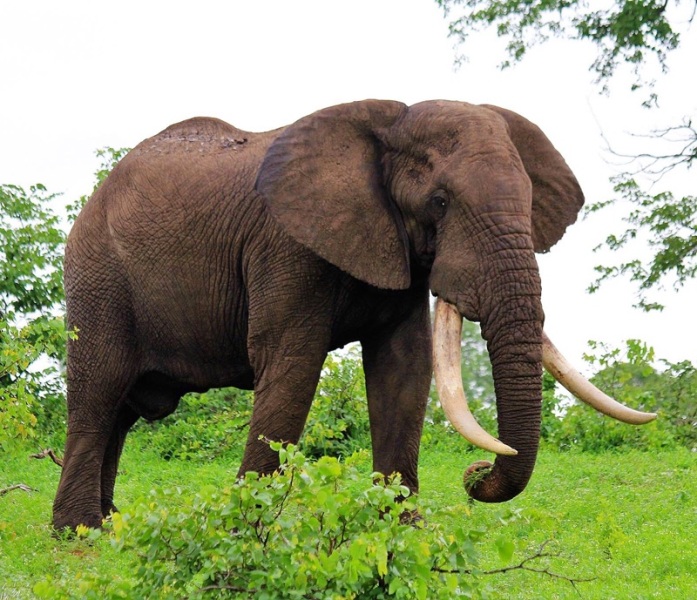Page 180 of 280
Re: Tuskers of Kruger Discussions & Identification
Posted: Wed Jan 18, 2017 12:18 pm
by Jay Randolph
Hi all, Thank you very much for the welcome.
Of course, I was disappointed not see a tusker on my last visit. How come one would not be able come across a tusker on Mopolongo loop?? However, I was very surprised to see so many baby elephants around in herds despite the crippling drought in the park.
Hopefully, see you soon!
Re: Tuskers of Kruger Discussions & Identification
Posted: Wed Jan 18, 2017 5:31 pm
by okie
Procreation is natures way to compensate for losses caused by natural disasters

For instance ,during droughts , more animals die , and because of good food supply , vulture numbers tend to increase , but they decrease again during wetter cycles , because of fewer animals dying , and therefore less food available to scavenge .During dry spells , you will also find increased numbers of Quelea finches - the flocking together in huge numbers , more food for raptors , that also then increase in numbers .
In other words , in nature , all numbers do not necessarily reduce during dry spells , and all numbers do not necessarily increase during " good " times .
It is all a big balancing act , and it only becomes disturbed when MAN intervenes and disturbs the balance

Oh , by the way , all bull elephants are tuskers ( in the making ) -- you just have to wait long enough to see them in all their glory with full grown tusks

Re: Tuskers of Kruger Discussions & Identification
Posted: Wed Jan 18, 2017 7:14 pm
by Richprins
Jay, the elephants take years to adapt to or suffer from drought, they are the ultimate multitaskers, so continue breeding, despite what Kruger says about them "regulating their own breeding".
Unfortunately they will be the last to die, after changing the ecosystem. Check Tsavo.
Re: Tuskers of Kruger Discussions & Identification
Posted: Fri Jan 20, 2017 4:25 pm
by Dzombo
Jay Randolph wrote:Hi all, Thank you very much for the welcome.
Of course, I was disappointed not see a tusker on my last visit. How come one would not be able come across a tusker on Mopolongo loop?? However, I was very surprised to see so many baby elephants around in herds despite the crippling drought in the park.
Hi, and welcome
I think it's not simply am matter of there is a drought, so elephants won't breed. It's a lot more complicated than that.
Remember that elephant gestation is 22 months. So these small babies were probably conceived when the drought was only starting. Did the elephants know it was going to last for 2 years? Probably not, so they just did what elephants do

Re: Tuskers of Kruger Discussions & Identification
Posted: Fri Jan 20, 2017 7:15 pm
by Richprins
Ja! They do what elephants do!

This from Gump after Christmas last year..tar road a few km south of Babalala:

Re: Tuskers of Kruger Discussions & Identification
Posted: Fri Jan 20, 2017 11:20 pm
by aat
Gump has seen SHIPENE


[quote="Richprins"]Ja! They do what elephants do!

This from Gump after Christmas last year..tar road a few km south of Babalala:
Re: Tuskers of Kruger Discussions & Identification
Posted: Sat Jan 21, 2017 9:37 am
by Flutterby
Well done!

Tuskers of Kruger Discussions & Identification
Posted: Fri Jan 27, 2017 12:38 am
by aat
Breaking tusker news : Masthulele still alive and photographed yesterday
will be continued
Re: Tuskers of Kruger Discussions & Identification
Posted: Fri Jan 27, 2017 6:33 am
by okie
Wow , great news

Saw him in October 2009 , and always wondered what happened to him -- He was massive - like to see what he looks like now

Re: Tuskers of Kruger Discussions & Identification
Posted: Fri Jan 27, 2017 7:46 am
by Flutterby
Seen quite a few pics of him on FB lately.

